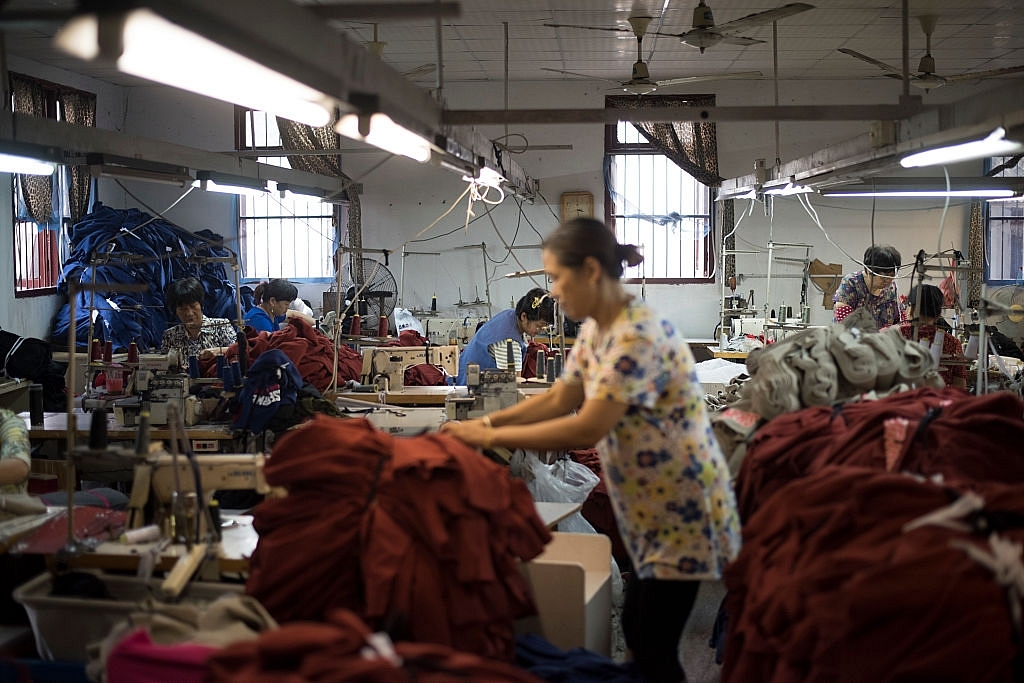Insta
Globalisation Is Not A Pill That Works Well For Everyone

Workers sew t-shirts in a factory in Zhujiajiao, on the outskirts of Shanghai, China. (FRED DUFOUR/AFP/Getty Images)
In the most recent Global Attitudes Survey, conducted by Pew Research Center, a bulk of the population in China and India support their respective countries’ growing incorporation into the global economy.
But as seen in the debate over Brexit, the trade debate in the United States presidential election and the crisis in Europe, voices against globalisation have the upper hand in first-world economies.
Why is there such a stark contrast between advanced economies and emerging ones?
Roshan Kishore of the Mint cites a research paper issued by the Japan-based Research Institute on Economy, Trade and Industry (RIETI). It shows that the advent of global value chains (GVCs) has helped emerging economies like China and India, while advanced economies have lost out.
Collecting data from the World Input-Output Database, the RIETI paper shows that between 1995 and 2011, India almost doubled its share in real GVC income arising from manufacturing. Here’s a graph representing these results:
Globalisation has helped Indian industry, raising employment chances for workforces involved in producing for GVCs with the overall gain in employment being higher in comparison to several major economies; its gains are much better than South Korea and Taiwan but far lower than that of China.
Also, whereas China witnessed a rise in wages as employment rose, same cannot be said about the wage growth for Indian industrial workers. Given this comparison, it is not completely false to say globalisation has not been a boon to all, and that some form of inequality does persist between advanced and emerging economies.
Read the full Mint op-ed here.
(Graphs courtesy of Mint)
Support Swarajya's 50 Ground Reports Project & Sponsor A Story
Every general election Swarajya does a 50 ground reports project.
Aimed only at serious readers and those who appreciate the nuances of political undercurrents, the project provides a sense of India's electoral landscape. As you know, these reports are produced after considerable investment of travel, time and effort on the ground.
This time too we've kicked off the project in style and have covered over 30 constituencies already. If you're someone who appreciates such work and have enjoyed our coverage please consider sponsoring a ground report for just Rs 2999 to Rs 19,999 - it goes a long way in helping us produce more quality reportage.
You can also back this project by becoming a subscriber for as little as Rs 999 - so do click on this links and choose a plan that suits you and back us.
Click below to contribute.
Latest